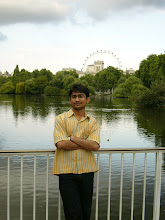Friday, August 15, 2008
Pollution through aquaculture
THIS is apropos of Sindh Fisheries Minister Zahid Ali Bhurgari’s statement (July 9) in which he stated that the Sindh government would allot 20,000 acres for the development of aquaculture in the province on modern lines.
The ministry would extend its full support to a project of the federal ministry for food, agriculture and livestock (Minfal) through which model fish and shrimps farms will be set up and the cage system will be introduced in the province. Initially the project would be commenced in Thatta and Badin districts.
In fact, aquaculture or underwater factories or fish farming is the fastest growing food production sector in the world but the notable minister, perhaps, is quite unaware of the dangers of aquaculture. According to the Food and Agriculture Organisation of the United Nations, the underwater factories have grown three times faster than the land - based animal agriculture.
In the aquafarms, in the ocean, close to shorelines, fish is packed into nets or mesh cages. Packed into cages, the fish remains subject to diseases and pollution. It becomes difficult to manage the pollution and disease issues in the factories.The FAO says that “conditions on aquafarms are so horrendous that on some farms 40 per cent of fish may die before farmers can kill and package them for food”. The aquafarms require more money than the wild-caught fish in the sea, rivers and ponds.Fish lives in the filthy areas. Besides, it pollutes the environment with the fish excrement, chemical-laden fish feed and diseased fish dead bodies.
This type of fish production not only leads to sufferings for the fish and fishers but also to ecological damage.By promoting the underwater factories, a fisherman feels threatened because by doing this the price of the fish will come down and the traditional territories where a common fisherman does his job will be occupied by the new factories. That will not merely take away the jobs from the fishermen but possibly will have huge impact on the wild stocks.
Through this letter and in the light of the issues mentioned, I would ask the minister to peep into the matter before heading for the aquaculture industry. To me, for a sustainable fishing industry, the minister should prepare a fisheries policy that must ensure the livelihood of a common fisherman and protection of ecology and wild fish stock.If a poor fisherman and his family are economically content and the environment is protected from pollution, then the country can grow and flourish. The aquaculture will, otherwise, destroy everything.
ABDULLAH KHOSO
Karachi
http://www.dawn.com/2008/07/16/letted.htm#2
Subscribe to:
Post Comments (Atom)

No comments:
Post a Comment